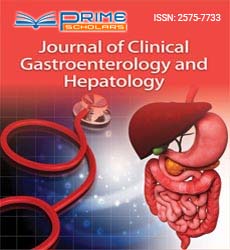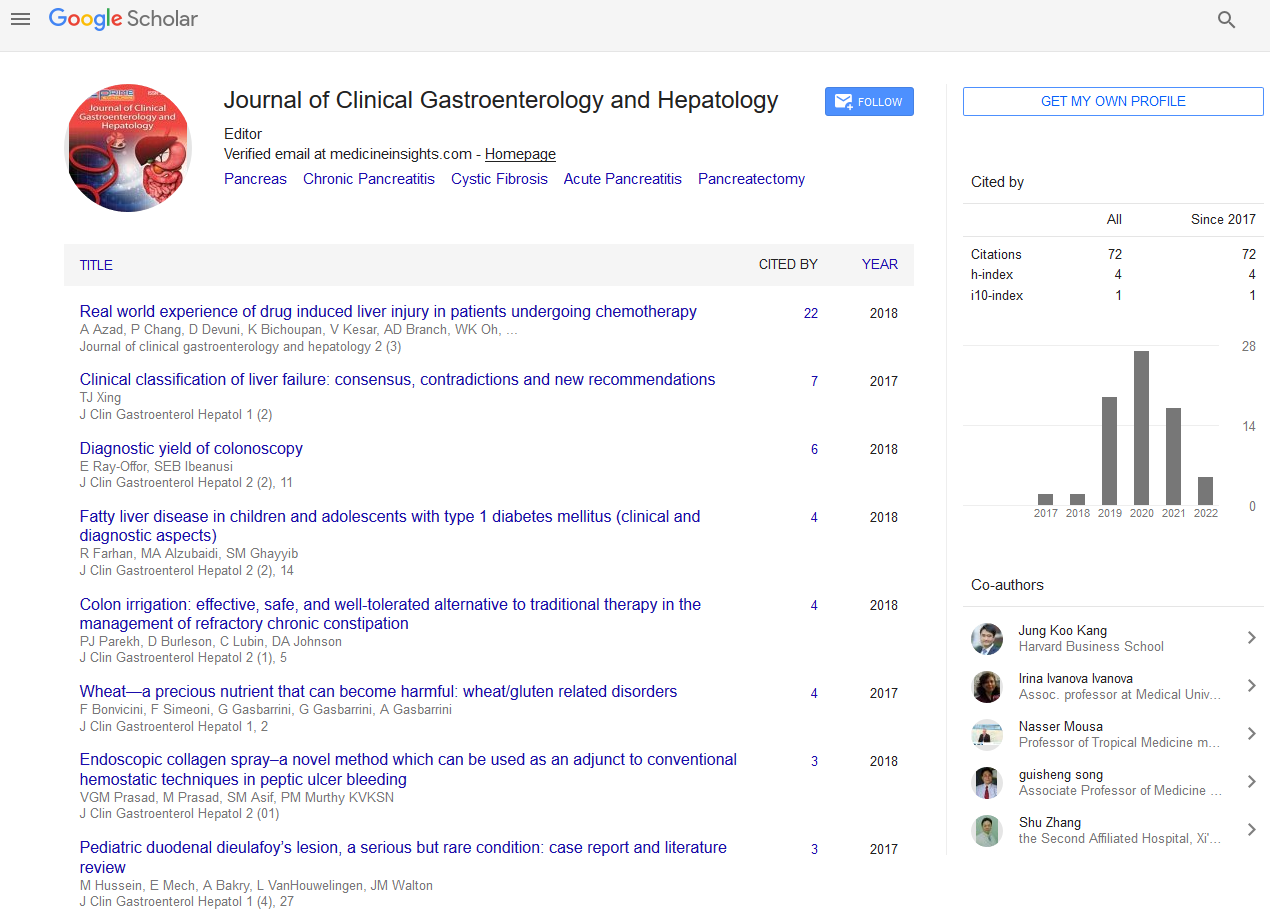Perspective - (2024) Volume 8, Issue 4
Peptic Ulcers: Causes, Symptoms, and Management Strategies for Optimal Health in Gastroenterology
Calvin Paul*
Department of Gastroenterology, University of Health Sciences, UK
*Correspondence:
Calvin Paul,
Department of Gastroenterology, University of Health Sciences,
UK,
Email:
Received: 31-Jul-2024, Manuscript No. IPJCGH-24-21630;
Editor assigned: 02-Aug-2024, Pre QC No. IPJCGH-24-21630 (PQ);
Reviewed: 16-Aug-2024, QC No. IPJCGH-24-21630;
Revised: 21-Aug-2024, Manuscript No. IPJCGH-24-21630 (R);
Published:
28-Aug-2024, DOI: 10.36648/2575-7733.8.3.39
Introduction
Peptic ulcers are open sores that develop on the lining of the
stomach, small intestine, or oesophagus, resulting from the
damaging effects of stomach acid. These ulcers can cause
significant discomfort and pose serious health risks if left
untreated. They are a common gastrointestinal condition,
affecting millions of people worldwide, and understanding
their causes, symptoms, and management is crucial for
effective treatment. The primary causes of peptic ulcers can
be categorized into two main factors: infections and the use
of certain medications. The reasons for this vary, including
individual immune responses and lifestyle factors. Another
significant contributor to the development of peptic ulcers is
the chronic use of nonsteroidal anti-inflammatory drugs such
as aspirin and ibuprofen.
Description
These medications can irritate the stomach lining and inhibit
the production of protective mucus, increasing vulnerability
to acid damage. Symptoms of peptic ulcers can range from
mild to severe. The most common symptom is a burning pain
in the stomach area, often described as gnawing or hungerlike,
which may worsen when the stomach is empty. Other
symptoms can include bloating, belching, nausea, and in
some cases, vomiting. Severe ulcers may lead to more serious
complications, such as bleeding, perforation, or obstruction,
which necessitate immediate medical intervention. Recognizing
these symptoms early is vital for effective management and
prevention of complications. Diagnosis of peptic ulcers typically
involves a combination of medical history evaluation, physical
examination, and diagnostic tests. Healthcare providers may
perform endoscopy, allowing direct visualization of the ulcer,
or utilize imaging tests such as X-rays. Additionally, tests
for H. pylori infection, such as breath, blood, or stool tests,
are common. Understanding the specific cause of the ulcer
is essential for determining the most effective treatment
plan. Management of peptic ulcers focuses on reducing
symptoms, promoting healing, and preventing recurrence.
These medications not only alleviate pain but also enhance the
healing process by reducing the acid levels in the stomach. If an
H. pylori infection is identified, antibiotic therapy is prescribed
to eradicate the bacterium, often in combination with acidreducing
medications. In addition to medication, lifestyle
modifications play a crucial role in the management of peptic
ulcers. Patients are often advised to avoid foods and beverages
that can exacerbate symptoms, such as spicy foods, caffeine,
and alcohol. Stress management techniques, including
relaxation exercises and counselling, can also contribute to
improved gastrointestinal health.
Conclusion
Despite the effectiveness of modern treatments, some
individuals may experience persistent ulcers or complications
requiring further intervention. In such cases, surgical options
may be explored, including procedures to remove the
ulcer or to reduce acid production. Regular follow-up with
healthcare providers is essential to monitor progress and
adjust treatment as needed. In summary, peptic ulcers are a
prevalent gastrointestinal condition with multifaceted causes,
including H. pylori infection. Recognizing the symptoms early,
obtaining a timely diagnosis, and implementing an appropriate
management strategy are vital for preventing complications
and promoting healing. With a combination of medication
and lifestyle changes, individuals can effectively manage their
condition and maintain optimal gastrointestinal health. As
research continues to evolve, it is essential to stay informed
about the latest developments in peptic ulcer treatment and
management, ensuring better outcomes for those affected by
this condition.
Citation: Paul C (2024) Peptic Ulcers: Causes, Symptoms, and Management Strategies for Optimal Health in Gastroenterology. J
Clin Gastroenterol Hepatol. 8:39.
Copyright: © 2024 Paul C. This is an open-access article distributed under the terms of the Creative Commons Attribution Li�cense, which permits unrestricted use, distribution, and reproduction in any medium, provided the original author and source
are credited

